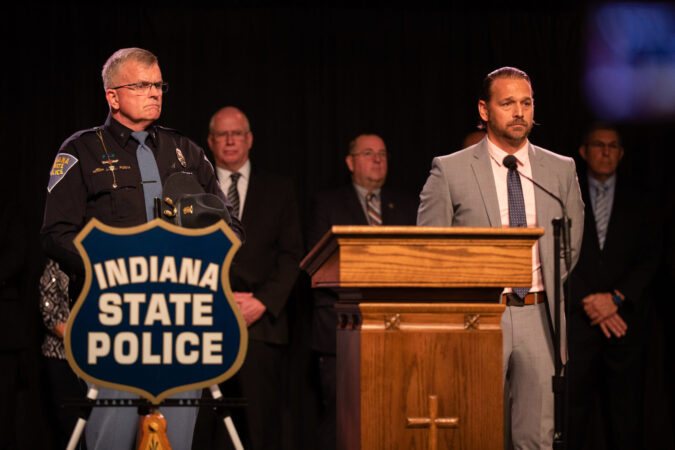Attorneys representing the 51-year-old man accused of killing two Delphi, Indiana, teenagers in 2017 have accused the prosecution and police of withholding evidence and lying about aspects of the case.
Richard Allen is accused of killing 13-year-old Abby Williams and 14-year-old Libby German on a hiking trail nearly six years ago. His attorneys, Andrew Baldwin and Bradley Rozzi, included their accusations in a motion responding to the prosecution’s attempts to hold the defense attorneys in contempt.
The latest filing from the defense, reviewed by Fox 59, claims that the police and prosecutors are lying about an unnamed Purdue professor, who police initially said dismissed the theory that the killings could be related to occult activity. Allen’s defense attorneys have posited an alternate theory of the crime that names other suspects who, they say, killed the teen girls as part of a ritual tied to Odinism. Part of the evidence for this, they say, are sticks and blood smears that supposedly match runes tied to ancient cultures.
Investigators originally told the defense attorneys that the name of the professor had been lost, but Baldwin and Rozzi claim that police rediscovered the name in August. In September, however, the prosecutor’s office told them the professor’s name was still unknown.
Baldwin and Rozzi claim in their latest filing that tapes exist of the police interviewing the professor after they rediscovered who he was. The defense attorneys say in their filing that this interview contradicts the police and prosecution’s claims that the professor dismissed the occult theory.
At one point in the interview, the defense attorneys say, the professor said in the taped interview that someone “could certainly imagine that this was somebody’s idea that when you do human sacrifices you carve runes … there are some poetic sources that would sort of support that idea that somebody might have come across … that scenario seems entirely plausible to me.”
Investigators, however, implied the professor disregarded the possibility of human sacrifice playing a role in the killings, the defense attorneys wrote.
Baldwin and Rozzi also accuse the prosecution of lying about cell phone data used to track the movements of people in and around the crime scene on the day of the murders. The defense attorneys said they found a map made by investigators showing cell phone data and tracking of those movements, but were told by the prosecutor’s office that no such information existed.
The defense attorneys also said they found no evidence in discovery information that police spoke to any of the people whose cell phones were tracked near the crime scene on the day of the murders.
In addition, Baldwin and Rozzi accuse the prosecutors of providing information too slowly, and not providing requested information such as interviews with people who might help prove the defense’s alternate theory of the crime.
On March 18, Special Judge Fran Gull will hear arguments regarding the prosecution’s contempt claims against the defense attorneys. The contempt claims came in a filing from Carroll County Prosecutor Nicholas McLeland on January 29. Baldwin and Rozzi’s attorney, David Hennessy, filed a motion in February asking for clarification on the allegations, saying the allegations suffered from “insufficiencies.”
In one example, Hennessy noted that McLeland accused his clients of violating the court’s order regarding statements about the case. He cited a news release from November 2022 – which was before the court issued a gag order. Hennessy said McLeland has not explained how this amounted to contempt of court.

